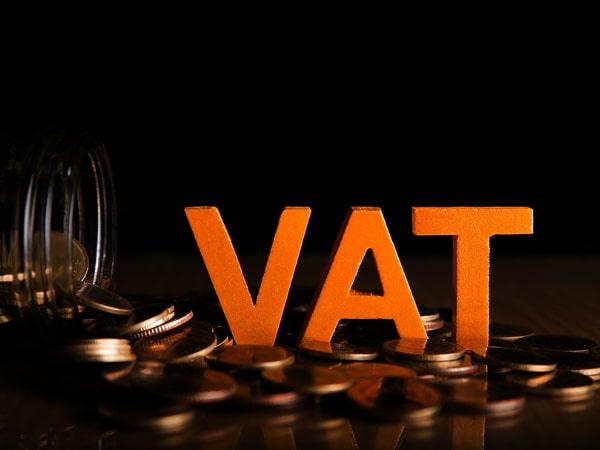Table of contents
In our previous article, we provided an overview of value-added tax registration numbers. Read it if you want to learn more about the essence, format, registration and using a VAT number. The purpose of this article is to focus purely on the pros and cons of being VAT registered. If you, as an entrepreneur, have ever asked yourself: “Is it worth being VAT registered?” read this blog till the end and never ask yourself the same question again.
What is VAT registration, and how it works
VAT registration is the process of registering for a value-added tax under the tax authority. Value-added tax is an indirect tax that is added to the value of goods and services at each stage of production and sale. Before moving directly to the benefits of being VAT registered, note that registration may be optional and mandatory. Usually, the company is obliged to register if its annual taxable turnover exceeds the threshold outlined in the tax regulation. VAT threshold varies around the countries, but in most jurisdictions, that number does not overtop EUR 100,000 or equal. Another way to fall under mandatory registration is by importing and exporting goods. Read our recent publication to learn more about VAT registration rules in the UK and EU.
After the registration, the company is obliged to include value-added tax in the cost of its goods and services. It raises the price which an end consumer pays.
If your company is subject to compulsory registration, this article will help you to better understand the essence of value-added tax and gain some practical tips for business taxation. However, if you are a small business with a low turnover, you also need to think about voluntary registration. There is a significant amount of startups deciding to apply for VAT registration without reaching a minimum turnover threshold. And that is why.
Quickly select a jurisdiction and register your company anywhere in the world online

Advantages and disadvantages of VAT registration
As with everything in the world, registration for a value-added tax leads to both positive and negative consequences. Our mission is to provide as much as possible strengths and weaknesses of the registration. Below you can find the qualifying pros and cons of VAT registration. Some of those may seem commonplace, and some you’ve never thought of before.
Pros of VAT registration
There are a lot of benefits of being VAT registered:
- The company has the right to reclaim VAT on goods and services purchased by other VAT-registered businesses. The vendors or service providers usually charge VAT when you order it for your business. Since your company is also VAT-registered, you can deduct or recoup the amount you paid on these purchases from the tax you charged on your sales. Reclaiming input value-added tax lowers your company’s overall tax burden. Note that it works only for business-purpose purchases.
- Possibility to reclaim VAT on expenses before VAT registration. For example, in the UK, you can reclaim value-added tax on goods you purchased for up to 4 years and services received up to 6 months before the registration. The goods shall remain in use on the reclaiming date.
- VAT-registered counterparties may also reclaim the VAT from goods and services received by your company. It means that the value-added tax component of your price does not burden such customers. The price remains competitive concerning companies non-registered for value-added tax.
- It makes the company more reputable. Companies registered for VAT usually appear more considerable in the client’s eyes. It occurs even in the case of voluntary registration because people are inherent to overestimate the revenue of the company subconsciously.
- New business opportunities are another benefit of being VAT registered. Some businessmen prefer VAT-registered companies over non-registered ones. The absence of a value-added tax number in issued invoices can often scare off a potential business partner. On the contrary, VAT registration strengthens the confidence of counterparties in the reliability of your company.
- The company gets a VAT number. The company may use it on the website, invoices, letters, company profiles, etc. It gives an additional positive image of your business.
- Meticulousness in record keeping. Value-added tax registration forces your company to maintain record-keeping accurately. It helps to conduct your business effectively and efficiently. Planning and forecasting, compliance and tax reporting, as well as decision-making are benefits from proper record keeping. In addition, it always ensures you with necessary pieces of evidence in case of any disputes or lawsuits.
- Cost-effectiveness of the business. Let’s simulate the situation. You have a UK company which is voluntarily registered for value-added tax. Annual turnover to trigger the threshold in the UK shall exceed £85,000. The general tax rate in the UK is 20%. Your income in the reporting financial year equals £50,000, £40,000 of which is yours, and £10,000 (20% of £50,000) is tax collected by the tax authority. Your costs are £26,000, £15,000 of which are VAT-charged operations (tax rate is 20%). It means that the profit equals £40,000 (income) – £26,000 (costs) + £3,000 (tax you paid for supplies and services) = £17,000 instead of £14,000 you would receive without the reclaiming.
Have questions? Contact us!
*Your contact information will be used for our inner purposes and only with the aim to provide you with the best business solutions.
Cons of VAT registration
Despite all the benefits of VAT registration, there are some disadvantages you should be aware of:
- Additional expenses for keeping records. Maintenance of proper record keeping requires a lot of attention and administrative efforts. It is appropriate to involve a professional in this matter, which will lead to an increase in costs spending to pay for such services.
- Higher cost of goods and services. If you charge VAT, your products and services may become more expensive and less desirable. It especially concerns clients not registered for value-added tax or final consumers who can’t apply for reclaiming.
- Large VAT bill. If you supply/provide more goods and services than receive, you must pay the difference to the tax authority. If you do not expect a high value-added tax charge, this might cause cash flow problems.

Everything you need to know about VAT registration
Contact Fintech Harbor Consulting if you need consultation or other legal assistance regarding VAT registration.
How to get VAT registration
You need to collect the required package of documents and file an application to the responsible tax authority. More information is in our article VAT Registration Number: What it is and How to Get it. For any additional questions, please contact our team.
When should you register for VAT?
There is voluntary and compulsory registration. Any business may apply for voluntary registration if it considers it necessary for particular reasons. One of the following requirements must be met to fall under compulsory registration:
- The company involved in importing/exporting goods or services.
- The company deals with domestic sales of goods/services, and its turnover exceeds the minimum threshold. The threshold varies among jurisdictions.
What do you need for VAT registration?
The documents for registration may vary depending on the country, nature of business, and peculiarities of the particular case. Our lawyers will provide a complete guide and assistance in registering for value-added tax in your case.
FAQ
What does VAT registered mean?
A company or person who has registered for value-added tax with their country’s tax authorities is said to be VAT registered. It means that after registration you are obliged to charge value-added tax on taxable sales, collect it from clients, and adhere to all applicable tax rules and requirements.
Is it worth being VAT registered?
There are a lot of advantages of being VAT registered. However, the decision of whether to apply for value-added tax should be considered depending on the features of each particular case.













